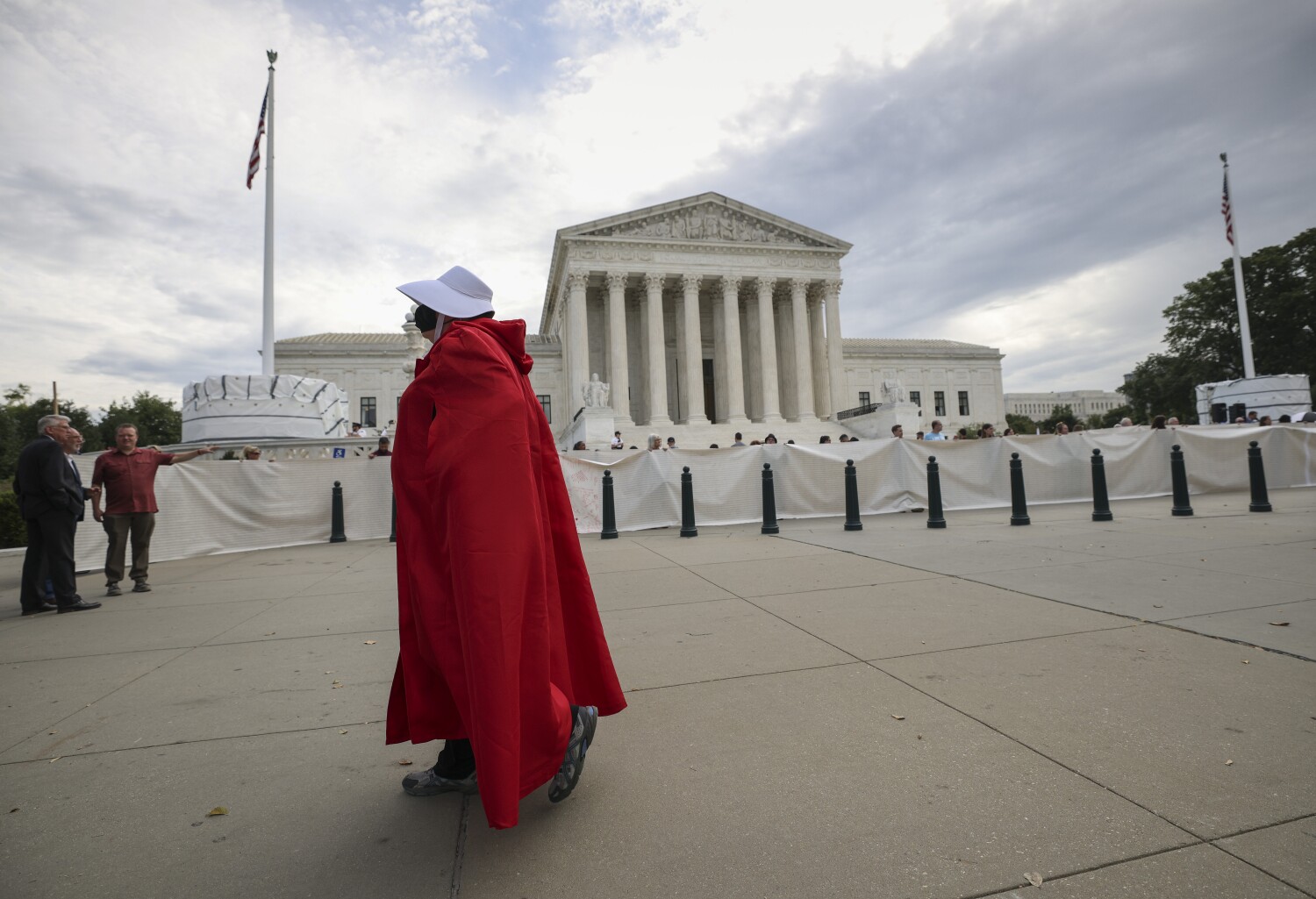A divided Supreme Court weighs Texas abortion law for the third time

For the third time, a divided Supreme Court will consider the Texas law that has stopped most abortions in that state. This time, the court is not ruling on the law’s constitutionality but deciding whether abortion providers and the Biden administration can sue to block it in federal court.
The justices will hear two hours of arguments Monday on the thicket of procedural questions that have thwarted advocates of abortion rights and kept in place the state’s strict new limits on abortions.
While the lawyers will argue over procedure, the overriding question is whether the conservative court will stand in the way of a state’s bid to stop abortions. So far, the answer has been no.
The Texas Heartbeat Act, also known as Senate Bill 8, says it is illegal to perform an abortion after about six weeks of a pregnancy but gives the state no direct role in enforcing that ban. Instead, it authorizes private lawsuits in state courts against doctors or clinic owners who violate its provisions.
On Sept. 1, four members of the high court, including Chief Justice John G. Roberts Jr., voted to block the Texas law before it took effect, but they were unable to win over at least one more conservative to form a majority. Two weeks ago, the justices weighed the issue again after the Justice Department entered the case, but they agreed only to hear arguments on the procedural questions.
U.S. Solicitor Gen. Elizabeth B. Prelogar, who was confirmed last week by the Senate, called the Texas law an “affront” to the Constitution, as well as to the Supreme Court’s role in protecting the rights of Americans.
“Texas’s various procedural objections do not withstand scrutiny once S.B. 8 is recognized for what it is: a brazen nullification of this court’s precedents,” she wrote in a brief filed Friday.
“Texas is responsible for S.B. 8. And it is subject to this suit by the United States and an injunction by the federal courts.”
Prelogar’s argument rests on the idea that federal law is, as the Constitution states, the “supreme law of the land.” Yet throughout its history, the Supreme Court has shielded states from being sued directly. States are said to have “sovereign immunity” unless Congress has acted to waive it.
After the Civil War, however, the Reconstruction Congress passed the Civil Rights Act of 1871, which authorized suits in federal court against any person who, acting “under color of” state law, deprives others of their rights protected by the Constitution.
Typically, lawyers rely on this section of the 1871 act to sue state or local officials who are enforcing an unconstitutional law. But in this instance, the abortion rights advocates were not sure who to sue. They could not point to particular state officials or to the unknown private individuals who may sue an abortion doctor. As a fallback, they named state judges who might have to rule on a suit.
But the 5th Circuit Court of Appeals has twice rejected efforts to block the Texas law.
The first appeal to be heard Monday arose from a coalition of abortion providers who sued in July seeking to stop the Texas law. The second comes from the Justice Department, which sued in September, a week after the law took effect.
The Biden administration’s attorney acknowledged that the procedural law is not clearly on her side.
“To be sure, no state has ever attacked the supremacy of federal law through this mechanism before,” Prelogar wrote. “But the novelty of Texas’s unprecedented scheme does not render the federal courts powerless to redress the state’s ongoing violation of the Constitution.”
In response, lawyers for Texas say the legal battle should be fought first in state courts. If abortion doctors are sued for violating S.B. 8, they can defend themselves by asserting that the state law violates Roe vs. Wade and is thereby unconstitutional, Texas Atty. Gen. Ken Paxton argued in his brief.
“The Constitution does not guarantee pre-enforcement review of state (or federal) laws in federal court. And there is nothing unprecedented about vindicating constitutional rights as a state-court defendant,” he wrote.
The two cases to be heard Monday are Whole Woman’s Health vs. Jackson and United States vs. Texas. It is not clear whether the justices will rule quickly because the cases arrived as emergency appeals or will instead follow the usual procedure and spend weeks writing a decision accompanied by dissents.
[ad_2]
Share this news on your Fb,Twitter and Whatsapp
NY Press News:Latest News Headlines
NY Press News||Health||New York||USA News||Technology||World News